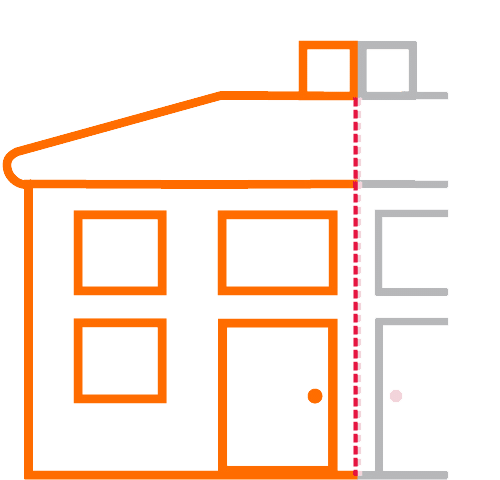Maintaining Insulation Over Time
Insulation is a crucial element of any energy-efficient home. To ensure that your insulation continues to perform effectively over time, regular maintenance is essential. Checking for any signs of wear and tear annually can help you identify any potential issues before they escalate, ultimately saving you both time and money in the long run.
Furthermore, keeping an eye out for any gaps or areas that may require additional insulation can help maintain the overall efficiency of your insulation. By proactively addressing these gaps, you can prevent energy wastage and ensure that your home remains comfortable all year round. Remember, proper maintenance of your insulation is key to maximising its longevity and optimising your energy savings.
Inspecting for Wear and Tear Annually
Regular annual inspections of your insulation are crucial to ensure that it remains in optimal condition. By conducting these inspections, you can proactively identify any signs of wear and tear that may compromise the efficiency of your insulation. During these inspections, pay close attention to any areas where the insulation appears damaged, compressed, or damp, as these are indicators that it may need repair or replacement.
Moreover, annual inspections provide an opportunity to address any potential issues before they escalate into more significant problems. By promptly repairing or replacing damaged insulation, you can prevent energy loss and ensure that your home remains efficiently insulated throughout the year. Schedule these inspections as part of your routine maintenance tasks to maintain the integrity of your insulation and maximise energy savings over time.
Maximising Energy Efficiency
To achieve maximum energy efficiency in your home, implementing sustainable heating and cooling practices is essential. Start by setting your thermostat at an optimal temperature to avoid unnecessary energy consumption. Additionally, consider installing a programmable thermostat to regulate temperatures based on your schedule, ensuring efficiency without compromising comfort.
Incorporating energy-saving appliances, such as energy-efficient light bulbs and smart home devices, can significantly reduce your household energy consumption. Unplugging electronics when not in use and using power strips to easily disconnect multiple devices can help minimise standby power usage. By adopting these practices, you can maximise energy efficiency in your home while reducing your environmental impact.
Implementing Sustainable Heating and Cooling Practices
Implementing sustainable heating and cooling practices is crucial in reducing energy consumption and costs. One effective method is to utilise programmable thermostats, allowing you to regulate indoor temperatures based on your daily schedule. By setting lower temperatures during the night or when you are away, you can significantly cut down on energy usage without compromising comfort. Additionally, investing in energy-efficient heating and cooling systems, such as heat pumps or geothermal systems, can provide long-term savings while minimising environmental impact.
Another essential aspect of sustainable heating and cooling practices is proper maintenance of your HVAC systems. Regularly cleaning or replacing air filters not only improves air quality but also enhances system efficiency. Moreover, sealing any gaps or leaks in ductwork prevents energy wastage by ensuring that air circulates efficiently throughout your home. By incorporating these sustainable practices into your heating and cooling routines, you can create a more energy-efficient and eco-friendly living environment.
Government Rebates and Incentives
Government rebates and incentives play a crucial role in encouraging homeowners and businesses to adopt energy-efficient insulation techniques. These schemes provide financial benefits that can offset the initial costs of upgrading or installing insulation. By taking advantage of these rebates, individuals can not only enhance their property’s energy efficiency but also contribute to environmental sustainability.
In addition to monetary savings, government incentives often come with the added advantage of promoting a greener and more sustainable living environment. These initiatives serve as a catalyst for positive change, nudging society towards reducing its carbon footprint and dependence on non-renewable energy sources. Therefore, exploring available rebates and incentives can not only lead to immediate cost savings but also pave the way for a more eco-conscious future.
Exploring Financial Assistance Options
There are various financial assistance options available to aid homeowners in their quest for more efficient insulation and reduced energy consumption. These options can help alleviate the initial costs associated with installing quality insulation materials by offering rebates or incentives. Government schemes and programmes often provide financial support to encourage the adoption of sustainable practices, including improving insulation in homes.
Exploring these financial assistance options can make a significant impact on both the environment and your household expenses. By taking advantage of rebates and incentives, you not only contribute to a more sustainable future but also enjoy the immediate benefits of lower energy bills. It is worth researching the various schemes and incentives offered by local authorities and energy providers to determine which options best suit your needs and budget.
FAQS
Table of Contents
ToggleHow often should I inspect my insulation for wear and tear?
It is recommended to inspect your insulation annually to ensure it is in good condition and functioning effectively.
What are some sustainable heating and cooling practices that can help maximise energy efficiency?
Implementing practices such as using programmable thermostats, sealing air leaks, and maintaining proper ventilation can help maximise energy efficiency and reduce energy costs.
Are there government rebates and incentives available for improving insulation in my home?
Yes, there are various government rebates and incentives available for improving insulation in homes to promote energy efficiency and sustainability.
How can I explore financial assistance options for upgrading my home’s insulation?
You can explore financial assistance options through schemes such as grants, loans, or energy efficiency programmes offered by government bodies or energy providers.
What are the benefits of maintaining insulation over time?
Maintaining insulation over time can help reduce energy consumption, lower energy bills, and create a more comfortable living environment by regulating indoor temperatures effectively.
Related Links
Effective Maintenance Practices to Ensure Long-Term Energy Efficiency
Understanding the Role of Thermal Insulation in Energy Conservation





